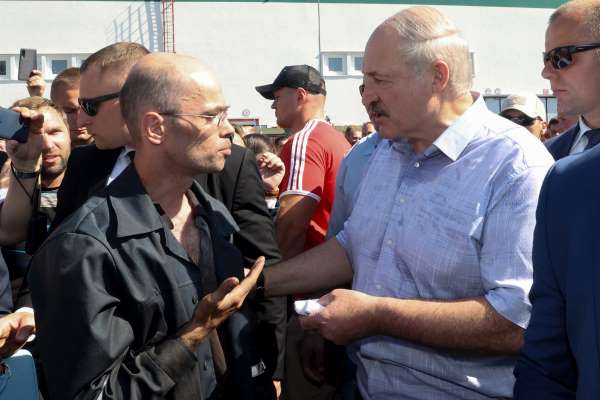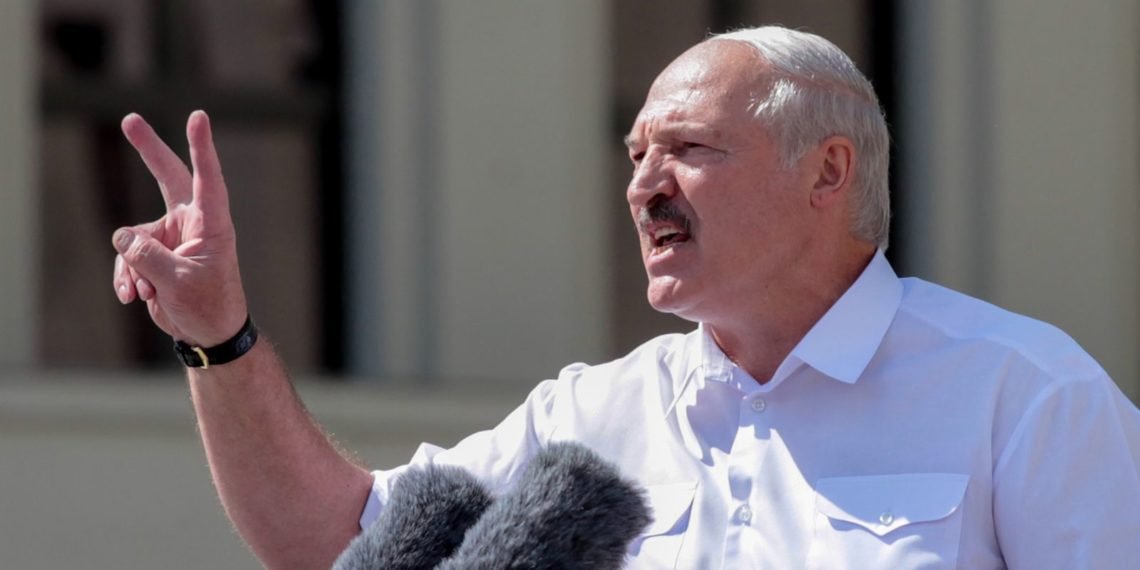Belarus President Alexander Lukashenko has said there will be no new elections “until you kill me”. The long-standing leader is facing the biggest challenge of his 26-year rule, amid a wave of mass protests and strikes following his re-election on 9 August.
“We held elections already. Until you kill me, there will be no other elections,” he said during a speech to workers at one of the large state-run industrial plants that are the pride of his Soviet-style economic model and core support base.
Alexander Lukashenko also disclosed he would be willing to hand over power after a referendum, in an apparent bid to pacify mass protests and strikes;
“We’ll put the changes to a referendum, and I’ll hand over my constitutional powers. But not under pressure or because of the street,” Lukashenko said, in remarks quoted by the official Belta news agency.
“Yes, I’m not a saint. You know my harsh side. I’m not eternal. But if you drag down the first president you’ll drag down neighbouring countries and all the rest.”
Alexander Lukashenko
He made the offer, which he insisted would not be delivered on while he was under pressure from protesters, after exiled opposition politician, Sviatlana Tsikhanouskaya said, she was willing to lead the country. In a sign of Lukashenko’s growing vulnerability, he faced jeers and chants of “step down” during the speech to the workers at a tractor plant.
Russia has told Lukashenko it is ready to provide military help to Belarus in the event of an external threat. Lukashenko faces the threat of European Union sanctions after a bloody crackdown on protests following what demonstrators say was his rigged re-election victory last week. He denies losing, citing official results that gave him just over 80% of the vote.

Earlier, the UK’s foreign secretary, Dominic Raab, said Britain does not accept the results of the “fraudulent” election in Belarus. He called for an urgent investigation into the ballot’s “serious flaws” and also condemned acts of violence by the Belarusian authorities to suppress peaceful protests following the re-election of Mr. Lukashenko.
He said the government will work with international partners to sanction those responsible and hold the country’s authorities to account.
“The world has watched with horror at the violence used by the Belarusian authorities to suppress the peaceful protests that followed this fraudulent presidential election,” Mr Raab tweeted.
Speaking in a video address from Lithuania, opposition politician Tsikhanouskaya urged security and law enforcement officers to switch sides, saying they would be forgiven if they did so now. She also called for the creation of a legal mechanism to ensure that a new fair presidential election could be held.
“I am ready to take responsibility and act as a national leader during this period,” Tsikhanouskaya said.
She fled abroad last week, saying it was for the safety of her children, but quickly began releasing videos calling for anti-government protests to continue.
European Union leaders are expected to send a message of solidarity to Belarusian protesters during an emergency video conference on Wednesday.





















